By Stephen Bryant Walker & Melanie Noel Light
-Table of Contents-
-The Philosophy-
The Five Precepts of Liberation
What Does Balance Have to Do With It?
What Is Balanced Health?
What Facilitates Balanced Health?
Why Do We Suffer?
What Causes Suffering?
How Can We Rid of Suffering?
What is Our Natural State of Being Without Suffering & How Can We Access It?
-The Tools-
Cultivating a Happier Life
Mindfulness & Awareness
Energy and Motivation
Realistic Desires
Values & Ethical Living
Expression & Creativity
Right Questions & Process
Clarity & Acceptance
Karma & Dharma
Human & Universal Nature
Fairness & The Greater Good
Balance
Hide & Seek
The Magical Reality of Existence
Kind Acceptance
-The Philosophy-
The Five Precepts of Liberation
 There’s one thing we all have in common. Even more than desiring the fountain of youth or pot of gold, we’d all like to find an eternal supply of happiness, achieve a constant state of contentment that carries us through our days and calms our minds at night. Aside from our basic needs for food, shelter and safety, happiness is the most sought after goal of existence. But why does it often feel so out of reach? Is it even possible to lessen our suffering and achieve more happiness? And if so, what’s the magic potion?
There’s one thing we all have in common. Even more than desiring the fountain of youth or pot of gold, we’d all like to find an eternal supply of happiness, achieve a constant state of contentment that carries us through our days and calms our minds at night. Aside from our basic needs for food, shelter and safety, happiness is the most sought after goal of existence. But why does it often feel so out of reach? Is it even possible to lessen our suffering and achieve more happiness? And if so, what’s the magic potion?
According to Buddhist philosophies the ‘Five Precepts of Liberation’ – which are ancient Buddhist guidelines for accessing peace and contentment – we can greatly lessen our suffering and increase our joy. Buddhism itself is just a general spiritual philosophy for living well; one that emphasizes truth, awareness, balance and the individual’s role in affecting the quality of their own life. Like Buddhism, The Precepts are as valid today as they were thousands of years ago.
The Five Precepts of Liberation reveal age-old traps we all fall into and guide us out of them. They teach us to refrain from unproductive actions in order to simplify our lives, instead engaging in productive ones in order to improve our lives.
Everyone’s looking for a sense of inner peace and well being, but we tend to get lost along the way. The truth is that our lives don’t have to be as complex as we make them; our desires and joys don’t have to be so out of reach or fleeting; the pathway to happiness does not have to be such a mysterious, elusive or painful journey. We do, however, have to be willing to put some effort into cultivating our own happiness. We have to be willing to see things differently, uncover our deepest desires, and practice the art of living with balance in this dynamic world.
What Does Balance Have To Do With It?
Living requires balance because life is made up of infinity of possibilities, actions and reactions that – whether we know it or not – we are constantly affected by. To move withthese movements more harmoniously, we need to accept this dynamic nature of life. If we learn the basic science behind the flow of life, we will understand how to move with it. And we will then be on our way to becoming more balanced beings and existing more healthfully and contentedly.
At both the cellular and spiritual level our bodies need healthy thoughts as much as they need nutritious food and regular movement. Our minds conversely need wholesome food and stimulation. As it is said, the body is a temple, but that includes mind, soul and spirit. We have to respect, nurture and nourish the space in which all of these entities reside.
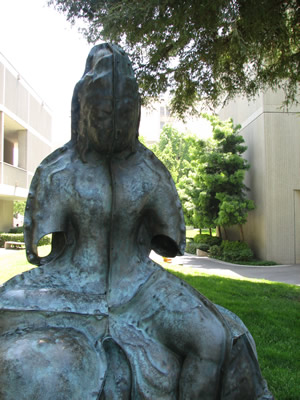
Too often, we do one or two healthy things, but neglect the other facets of our lives or fail to see how they are all connected. So, many of us have become disconnected in some way – mentally, physically and/or emotionally. The only way to true happiness is to re-establish healthy, free-flowing connections between the various parts of ourselves; connections that require regular check-ups and tune-ups. The awareness and acceptance of this need for regular care and upkeep facilitates a more harmonious life.
Balanced health is more than health alone because it implies a certain constant involvement in our own well being. Just because we’re healthy one day does not mean we can sit back and coast on that state indefinitely. If we take it for granted for too long we will most likely lose it. The same goes for happiness. It’s not a place we move into and can remain without a significant amount of cleaning house and regular maintenance. This ongoing engagement is like a delicate dance through life. When we learn to put our fears and worries into perspective – no longer getting the best of us – we can enjoy the music and move with the varying tempos.
What is Balanced Health?
- Having the freedom to express ourselves and our creativity
- Being an integral part of our community
- Uncovering basic truths about existence
- Understanding the nature of reality
- Recognizing the role we play in the quality of our own lives
What Facilitates Balanced Health?
Achieving true health and well being is not a static state but a dynamic way of being. It is a personal journey, something we move with throughout our entire lives. It requires consistent although often subtle transformation, because the dynamic nature of change is what helps us heal. It requires acknowledging and overcoming the negative (what’s not working for us) before going toward the positive (what is working for us).
When we are balanced within, our external lives reflect it. As well, if our lives are chaotic, chances are so are our inner worlds. Being aware of these connections – how one thing affects another – gives us the power to utilize the nature of life for our highest good. If ignorance is sometimes bliss, then awareness can be power.
Why We Suffer-
Can we alleviate all suffering? Probably not here on earth. Life by nature will always have its riddles, complexities, frustrations and sorrows. But the truth is that most of us dotend to suffer more than we need to. The good news is that much of the power to change it is in our own hands and minds. Yes, we do play a significant role in the quality of our lives. We have to believe this – or want to believe it – in order for this transformational journey to work for our greatest benefit.

What Causes Suffering?
- Not knowing ourselves well enough
- Not knowing what happiness really is
- Living from extremes
- Sensing unfairness
- Not seeing things as they truly are
- Having unrealistic or conflicting desires
- Needing specific outcomes
- Looking for lasting happiness from things that are impermanent
- Looking for happiness in the wrong places
How Can We Rid Ourselves of Suffering?
- Questioning our desires
- Questioning our existing perspectives on fairness
- Having a set of values to act from
- Seeing and accepting things as they truly are
- Ceasing to live from extremes
What Is Our Natural State of Being Without Suffering and How Can We Access It?
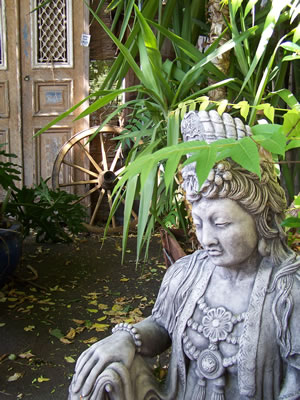
If the nature of life is a constant dancing, pulsating, ebbing and flowing of the universe and every single thing in it, what is the true nature of being human? According to Buddhism and most other religions and philosophies, our divine nature is good, although we’re not made up of goodness alone.
Good can’t really exist without its opposite, which contrary to popular belief is not evil. If we consider good to be something productive or enhancing, then its opposite would be something unproductive or depleting. Seeing ‘good’ and ‘bad’ in this utilitarian rather than judgmental way, it is easier to recognize what’s good for us and what is not. Thus, we’re more likely to make decisions that bring more enhancements to our lives.
Often, something that’s unproductive or depleting is viewed as “evil”. We make it a mysterious power separate from us and outside of our control that’s dead-set on seeing us suffer, when in fact unpleasant things are a part of everyone’s life. By labeling things so extremely we miss the middle ground where there are more choices based on profound reasoning. Here we can learn to step away from what’s not working for us and move toward what will.
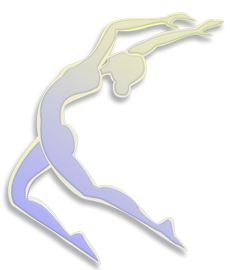
To balance our lives, we have to learn to move with the currents of life, but it doesn’t have to become a struggle. At best, it’s more like a delicate dance or martial art. Life is movements and reactions to those movements. There is flow and there are traffic jams. There is calm, there is frenzy and there is at times nothing to write home about. But if we let each situation define us, we are allowing ourselves to be slaves to the details. On the other hand, connecting with our natural state of being – that which is not riddled with anxiety, confusion, judgment, negativity, guilt, etc. – will help us rise above annoyances and hurts in order to enjoy a more constant balancing of emotions and experiences.
You’ve probably been lying to yourself or taking cues from too many Negative Nellies – we’ve all done it – but life does not have to be so hard. We make it harder than it has to be much of the time by overlooking the little joys in every day and giving too much power to the hassles. We also don’t tend to feel secure with who we are and why we’re here. We assume things never go right for us and operate from irrational beliefs that life is primarily a struggle with the powers that be working against us. We are in essence, sabotaging ourselves

Fortunately, there are techniques for keeping the suffering at bay and dealing with any inevitable un-pleasantries. Fortunately, we can learn what to focus on and how to look at things in order to become more skilled at living a happy, fulfilling life. It simply requires a new perspective, knowing where to start, and a little practice.
A note of caution, however: We have a tendency as human beings to swing from one extreme to the other, so while it’s important to realize that life can be better, it’s just as imperative to understand we can’t avoid all challenges in life altogether. If you’re not having some problems or difficulties in life, chances are you’re not challenging yourself very much and are avoiding your own suffering and that of others. No matter how well you design or organize things, ‘Life’ will still happen; meaning, people will still get sick, people will still have money problems, people will still experience unpleasant emotions at times. This is just the balanced nature of reality.
Within reality exists the fact that realistic and reasonable wants can be met, but we don’t have control of all of life’s “switches”. Lessening or alleviating suffering does not mean life will be free of challenges and antagonizing entities. The sooner we accept this, the sooner we can get to the happiness at hand
-The Tools-
Cultivating a Happier Life

In order to ease our suffering so the bliss can bubble up, we need to re-acquaint withwhat really matters to us as individuals. To do this we have to figure out who we are and what we believe in. Many of us don’t question our foundation – what supports us and inspires our causes – and so we operate from impractical, irrational or erroneous assumptions about who we are, what we want, and what’s possible. If we don’t back up and create a strong self-defining structure, we’ll continue to make the same mistakes and encounter more suffering than necessary.
Two words: Perspective and Cognition. We have to clear away mental debris and actuallypractice thinking differently. We have to see the world and all the possibilities within. Then we need to reinforce these new habits by acting accordingly. In a sense, it’s like re-learning a way of existing that we forgot along the way. There’s a fundamental quality to this way of being that can feel very intimate and freeing. What results is a re-invigoration for one’s life, from the mundane to the extraordinary.
Mindfulness & Awareness
Paying attention to our thought patterns
Not surprisingly, there’s good news and bad news. The bad news is that most of us regularly generate thoughts that are self-defeating. The good news is that when we become aware of this, we can do something about it. We can examine our lives to see what’s really going on. Like stepping far enough back and seeing the forest through the trees, we can see what is serving us and what is not; what needs to be done and how to make the right choices; and how to bring it all together so our patterns are now more positive and healthful.

Practicing mindfulness is a simple tool for shedding light on our faulty cognitive processes. Mindfulness means “paying attention in a particular way; on purpose and in the moment, non-judgmentally” to what we are doing, thinking and feeling. It enables us to balance and steady our energy by pinpointing emotional drains. The result is that we feel calm and stable but energized at the same time. This state of responsible awareness leads to a more intimate and authentic way of being.
Without awareness and mindfulness we may be prone to frantic energy that makes us feel scattered, distracted or anxious. At the other extreme, a lack of free-flowing energy can squelch our motivation and dampen our outlook. While we commonly fluctuate between these extremes, mindfulness will help us find the right amount of energy to be present and aware while still able to act accordingly.
The mind is a tool that will help us understand the need for this energetic process of change. However, we can’t just think our way out; we have to take the awareness to the next level and do something about it. The mind and the body are complementary. Harmony occurs when they are in sync and working together. When one right thought leads to a beneficial action, we tend to feel better, regardless of the re-action. And feeling good is the best reward of all.
Energy & Motivation
Uncovering our desires and motivations
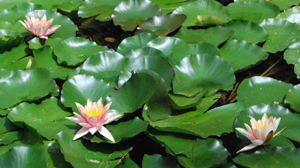
In the big scheme of things, there is a reason for everything’s existence. As human beings we are motivated by both suffering and happiness. The suffering motivates us to rise above or move away from what is causing our distress. The happiness we envision motivates us to act and reach for it, thereby pushing through the suffering. This is how itshould work, anyway. Instead, we usually get stuck in the unpleasant experience and don’t move beyond it. The key is remembering what we desire and what our strongest beliefs are because desires motivate and values guide. Having positive things to work toward renews both our understanding of and faith in life.
Mindfulness is a tool that leads to insight (seeing into something’s nature), which leads to the motivation to reach for our desires, goals and a better life. When our energy is freed up from unnecessary drains and we are aware of what it is we desire, we can focus our energies accordingly. Yet many of us ask, ‘Is it possible to have all that we desire?’ Achieving what we desire is attainable, but we might not get it all at the same time. We have to build it, we have to cultivate it, and although we may have an idealistic vision, it might not all come together exactly as we have envisioned. So while we can create some of our own existence in a sense – by living through our values – we must also learn to let go of the expectation of outcome. The easing of suffering and the presence of happiness will signal that we have arrived at a place where we can then nurture what we want to sustain.
Realistic Desires
Basing our desires on something real
We can daydream about perfect things, people and situations, but we can’t get lost in them. It’s natural for each of us to have desires and wants – these drive and steer our lives – but the quality of them counts more than we realize. For instance, are they do-able or are we setting ourselves up for failure? Unrealistic and demanding wants tend to get us into trouble, while impossible and clingy wants generally lead to angst. Having more realistic wants, we are brought back to balance, which then enables our desires to more easily come to fruition.
Wanting unrealistic things while not realizing they are unrealistic is typical. For example, we may want people to like us all the time or want to feel good all the time. These are desires that simply cannot be fulfilled, and focusing our efforts on them is wasted energy. There is a pragmatism to happiness that we often overlook.
Realistic wants include our intentions to help us achieve our goals, along with an openness and understanding that it’s all a process. There is satisfaction that can come from putting good effort into something, rather than needing to have everything we crave, needing to always be the winner, needing to save the world, or needing to haveexactly what we want when we want it.
Realistic wants that are more in line with reality are simply going to be easier to manifest, because the foundations for them are already set. Sure, you can reach for the moon and try to re-invent the rocket, but starting with realistic desires is going to get you results a lot faster, and satisfaction will be that much closer. We need these kinds of feel-good rewards to continue this journey of awareness, motivation and balance.
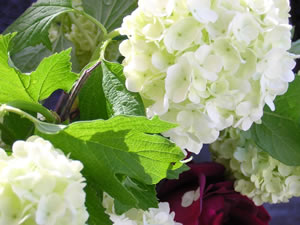
Values & Ethical Living
Acting out our most genuine beliefs
A value system is something we believe in, aspire to and act from. In order to behave in a manner that will help us achieve our goals on a regular basis, we need a genuine and fitting set of values that will guide each of us along the way. Our deepest beliefs generate our thoughts and compel our actions. Therefore, we can make the best decisions for ourselves by knowing what we believe in and what we want for our lives. For instance, from a personal standpoint our mental health and emotional wellbeing are of the utmost value; from an interpersonal and business standpoint what we offershould be valuable (i.e. the product or service we sell); and from a spiritual perspectivehappiness and freedom are usually our highest goals (and they should be!).
Once our values are defined, we need to utilize them by engaging in ethical living.Ethical living includes cutting down on negative action and analyzing what’s instigating the negative action in the first place. Mindfulness techniques such as meditation will help facilitate ‘right thought’, which comes after we let go of negative, anxious thoughts and images, creating a more beneficial way of thinking. As thinking leads to doing, this in turn helps facilitate ethical living.
Yet even negative experiences can be valuable in a sense, in that we learn what not to do again. If we learn from mistakes and unpleasant experiences, we essentially learn how to diminish suffering. And a lot of our suffering is truly useless, not based on what we value and who we are. We allow things and events to not only upset us, but often cripple us. Understanding this lays the foundation that will help welcome and breed more contentedness and joy into our lives.
We have to cultivate our own goodness and harmony in our lives; we have to work at it and practice it. But it will become a very rewarding part of our daily lives.
Expression & Creativity
Practicing authentic communication

Why is it so important to express ourselves and our creativity? Aside from just feeling good, expressing ourselves actually lightens the spirit. Whether we know it or not, when we communicate or create authentically, we are freeing something deep within us. Doing this regularly is essential for mental and emotional well being.
There are, nonetheless, often unconscious roadblocks stopping this process. For instance, we may feel guilty doing fun, creative things or think it isn’t “acceptable” to spend time this way. We may fear our opinions or creations will be rejected or misunderstood, and exposing our innermost selves can make us feel unnervingly vulnerable. But if we deny this basic psychological need for too long or too often, we won’t feel fulfilled by our lives because we won’t be motivated to reach for our desires. A part of us, in being neglected, will begin to shut down and die off. Therefore, we must see the value in self expression, give ourselves permission, and then find constructive ways in which to express our innermost selves.
Right Questions & Process
Soul Searching Clears the Path
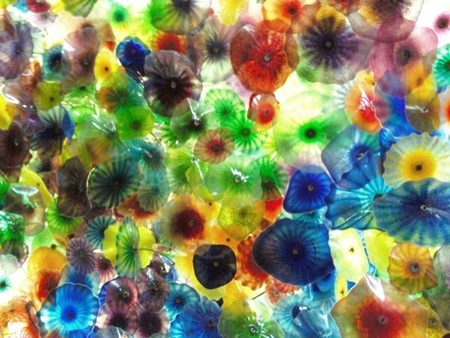
Asking ourselves certain questions is essential for coming to accurate conclusions. While we can have ideological goals such as “I want to be happy”, we need to pair them with more concrete goals pinpointing just what will make us happy and how to get there. This basically requires being accountable for our own happiness.
If we decide what we want most, it is said the path will appear. The truth is, it’s always there, just usually cluttered with overgrowth and debris. We work through the clutter by recognizing thoughts and beliefs that are not serving us, and then we practice freely envisioning our lives as we really want them to be. Questions to ponder:
- “What do I want to do before I die?” Or “Looking back on my life, what do I want to have accomplished?”
- “What kind of mark or contributions do I want to have made?”
- “What do I want my days to be like?”
- “What do I want to learn or do better?”
- “What do I enjoy most?”
When we feel deflated and hopeless, however, we tend to ask questions such as “Why am I not over it yet?” “Why am I not there yet?” “Why has such- and-such not happened yet?” or “Why did this happen instead?” It is important to remember that it is all a process, and understanding the process is important for any self-transformative journey. Just because we become aware of something does not mean everything will change overnight. On the other hand, sometimes we do awaken to everything feeling different. It seems something has shifted and we have re-aligned in a more balanced way. This usually feels good because it means we’ve let go of something and/or opened to something else.
But does it really happen overnight or in an instant, like a Fairy Godmother waving her wand over our slumbering heads? While there is a moment when a final ‘click’ may unlock a once-mysterious puzzle, it’s usually more gradual and subtle than this. Often, the wheels have been turning on an issue for some time, subconsciously and beneath our radar.
These epiphanies and moments when we know we’ve overcome a challenge are deeply stirring because we need to be rewarded for not only our good deeds, but our intimate leaps of personal and emotional growth as well. And since feeling good is one of the best rewards of all, it motivates us to keep going. If we weren’t meant to evolve, it wouldn’t feel so good when we do.
Clarity & Acceptance
Seeing the errors of our ways

One key element of any self-transformational journey is taking responsibility for our own actions and unconscious patterns. Whether we are willing to see it or not, each of us has within us an internal dynamic of victim, perpetrator and rescuer roles. As victim, we might feel that life is unfair to us. As perpetrator, we may walk all over others while refusing to see the damage we’re doing. As rescuer, we may forgo our own needs for those of others. Becoming conscious of these unconscious roles we play will help unravel our unhealthy habits.
It is no secret that we all have a tendency to lean toward extremes, looking for the perfect diet, the easy way out, the right opinion, the magic pill, etc. And when one thing goes awry, we usually swing to the opposite extreme, missing all the more balanced options along the way. This is because deep down we think it takes more work to remain balanced somewhere in the middle. But it’s really just different energy. We’re already expending large amounts of energy trying to manipulate the flow of life for our specific gain.
The expectation of absolutes is another way in which we trip ourselves up. Like riding the pendulum from one side to the other, when we try to reason with absolutes, we’re not really being reasonable. For instance, who hasn’t taken a personality test and struggled with the question “Have you ever lied?” We’re afraid that if we admit we’ve lied, we won’t look so good to the prospective employer/teacher/professional/etc. And yet it’s a silly question, really, because who hasn’t felt it necessary (and even justifiable) to lie at some point in their lives?
If we think too extremely or magically all the time, we won’t be logical enough or motivated to follow through. On the other hand, if we’re too logical but not optimistic enough, our passionate energies will stagnate and our dreams will fall flat. The truth is that everything we see is constantly changing, and we’re not comfortable with that as a society. But in denying a certain amount of chaos in life, we’re fighting the nature of life. While we can’t reverse the rotational spin of the earth, we can recognize our own merry-go-round. We can then meditate and free our minds, developing clarity and insight about the next step.
Karma & Dharma
Accepting the past, feeling the purpose
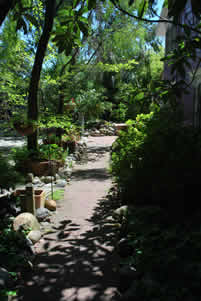
We need a new path, one that brings balance, but we must accept cause and effect as well. There are consequences (re-actions) to our past actions that may still have yet to come full circle – this is karma. These actions and reactions can be likened to situations, experiences, exchanges or energies we’ve created in the past whose reactions have not yet reached us. There’s nothing we can do about past actions but accept that they will come full circle and be aware enough to create better transactions present-time.
If we have good intentions and take positive action, we’ll change our overall karma for the better, thus making our future more prone to the good stuff. Once we’re clearer about how we interact with the elements around us, dharma comes into play. Dharma is the purpose each of us has for our lives, and we need to find and act out our purpose. A purpose-driven life needs to be embraced because the key to finding freedom and happiness is by acting out our values, which brings harmony to the interdependence of the universe. We need to act from our truth and actually do what we value. We need to practice disciplined ethics before we can find the spirit of awakening.
Human & Universal Nature
Accepting the imperfection, cultivating the goodness
According to Buddhism, we as individuals have a basic goodness (called Bodhi Citta). This nature is a stream of positive energy (chi, prana or lifeforce) that is unending and cannot be destroyed. It is emotionally-vivid, streaming energy that is both cognitive and spiritual. It inhabits everything, every speck of our internal and external lives and beyond.
This basic goodness is always there, but it has to be focused on and developed. Imagine the ‘Force’ from the movie Star Wars. If this life force is underdeveloped, it gets scattered or depressed. But too much attempted control will cause us to lose the balance and flow both necessary for a harmonious life. A compromise is required. A life of happiness and freedom requires a certain level of constant balancing. We have to accept that we have some, but not absolute control.
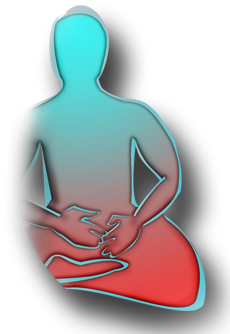
‘Buddha Nature’, on the other hand, is the “nature of the universe”, which is interdependence, or cause and effect. Meaning, when something happens, something else happens as a reaction (karmic energy). The mistake we make is thinking we are separate from the reaction, that the action and reaction aren’t connected. Since theyare connected, however, this makes us responsible for lives and our actions, including accepting the reactions.
Fairness & the Greater Good
Forgotten virtues
While we all want safety, fairness and love, we all experience betrayal, disappointment and injustice on occasion. This is life. The upside is that when our foundation is rocked and we sense some form of unfairness, we become motivated to re-evaluate our spiritual value system, the way we think, the way we see things, and the ways in which we can get through the suffering to happiness.
Although we sometimes question if fairness exists as an ideal, it does. And it matters to the community as much as the individual. We should rely on a strong sense of fairness, as well as act fairly toward others, not manipulating it for our sole benefit. It begins with the individual, but we need to engage in a community that’s based on fairness and shared values. Both the individual and community need to work on strengthening the concept of and reliance on fairness. We are all connected, and only by working together can we keep those connections positive and healthy.
As well, while it is quite possible to become enlightened as individuals, there are still going to be other people around us suffering. While it may be tempting to shut them out because we’re trying so hard to keep anything unpleasant from us, lacking compassion for those who don’t “get it” is not beneficial for the general good. The individual needs the community as much as the community needs the individual.
Balance
Everything in life is constantly fluctuating
The basic life energy that runs through everything in the universe is always present and always moving. Therefore, we need to let it move through us unfettered. Mostly, we simply need to immerse in it. Like stepping from solid shore onto a rocking boat, it requires balance.
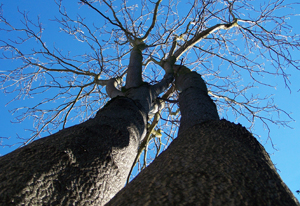
Imagine a long object (stick, cane, sword or other), and imagine it represents your life. If you pick it up and try balancing it on the top of your forefinger, you’ll notice it takes some concentration at first. Soon, however, it will become fairly easy and you’ll feel the elegant balance it requires to keep it horizontal.
We need to regularly practice this graceful kind of balance in our lives. Because if a little bird (events) comes along and perches on one end of the object you’re holding (your life), you’re going to have to thoughtfully and carefully re-adjust to compensate for it. This diligent manner of reacting is a natural and ongoing part of life. But what happens when we don’t do this?
The opposite of balancing is holding on, fixating and manipulating. It doesn’t work well because there are stronger forces at play, and yet we struggle against them like a game of tug of war. If, on the other hand, we lay the object down on the ground and think we have balanced it because it is now still, this is exerting control rather than balancing. Attempting to control the basic elements in our lives means we are not working with the underlying energetic principles of life.
Life is a dynamic entity. Like the cosmos always shifting, rotating and dazzling, so are we. There is nothing truly static about life; we only perceive and try to force non-movement, which is a waste of energy and causes distress. Moving with the currents of life, however, we have access to more resources we can use to better our lives.
Hide & Seek
Like a seesaw, there are going to be ups and downs
The fundamental game of life is hide-&-seek, which is basically just change. Things come and go and come again, yet we’re always somehow surprised when this happens. The car breaks down, the favorite coffee mug breaks, the spouse wants something different, and we act like it shouldn’t be happening.
Because we’ve defined something and we want it to stay the way we see it, we don’t handle change or surprise well. But that’s not allowing life to unfold naturally. So when something suddenly reveals itself – its true changing nature – we’re startled and baffled. We may even feel betrayed because we’re no longer getting what we thought we were going to get.
Sure, we’ll accept some change, but on our terms. For instance, we think things in life – if they’re going to change – should do so like a dimmer switch, nice and slow and easy. What we see, however, is life turning on and off – feast or famine, one extreme or the other. This just proves we don’t grasp existence itself, which is more like the ebb and flow of the tides.

The elements, life, the mind, happiness and other states of pleasure or pain are all pulsating – in and out, on and off, yes and no. We, however, want to get to the promised land of happiness and peace. But that stability in the way we imagine it does not exist. We’re searching for lasting situations throughout our lives, but they don’t exist.
We’re also always experiencing extremes throughout our lives. We’re happy and then we’re not, we have success and then we don’t, we think we’ve got it figured out and then we don’t. Chunky and elusive, life can seem rather schizophrenic to us. And yet when something like happiness appears ‘off’, it’s not really gone; It’s hiding within our suffering. Opposites hide within each other forcing us to experience and understand one to get to the other. The ‘off’ hides within the ‘on’, male within female, the yin within yang.
This game of hide & seek can feel like life is playing a trick on us. Just as we get what we want, it disappears. So we feel let down or may even panic from the perceived loss because we don’t realize that it comes around again. We then sink into despair, bitterness, anger or some other unproductive reactive abyss and curse the very nature of life. And then when we’re happy again, we try to hold on even tighter by making all of these plans for future happiness.
But what we haven’t learned is that we can’t predict or control the future, nor can we make anything remain static or still. So again we feel let down, as if ‘life’ dealt us another bum hand. But this is the way life balances ~ in change and cycles, ebbs and flows. We are all seeking and uncovering, seeking and uncovering. Like a kaleidoscope always changing and beautiful before our eyes, this is life if we would see it as such.
The Magical Reality of Existence
The ordinary can truly be extraordinary

Like life, magic itself is movement. Once we understand the fluid nature of existence, we can learn to balance and roll with it. While stability is typically desirable to us, nothing can grow or evolve in a stable (stagnant) state. Even the nature of the self moves. It moves because it is interdependent – not a solitary thing, but connected to all others. All of life is about transformation and movement. To be healthier and happier, we must learn to see the beauty in movement and the potential in change.
Everything’s changing and transforming – that in and of itself is magical. And since everything is subtly altering all the time, as human beings we have the choice to do so for better or worse (meaning, grow or deplete). If we try to control or close off to the other energies around us, we’ll come up against the same problems over and over again. On the other hand, if we intend to work with those energies – respecting them, being replenished by them, not feeding negative ones – we’ll raise our awareness of how to improve our lives.
Going with the nature of life willingly is harmonizing with the flow. It is also where thepotential for our lives resides. We can create better lives for ourselves – spiral up rather than go around in the same stagnant circles – by working with these energies. Tapping into the rhythms of life, creating goals while rolling with the punches, intending to bring more good things to the table…. this is how we set positive change in motion.
We’re all looking for the magic: The magic word that will help us ‘get’ it, the magic code that will help us do it right, the magical way that will help us get to the magic of the moment…But the magic is actually rather contrary to what we tend to expect. The magic is in the ordinary. It is seeing the truth of the matter, understanding and accepting the way things really are. So the real magic is in opening our eyes to reality, to what’s in front of and around us. Only then can we really work with it to create more positive, harmonious actions.
Kind Acceptance
Closing the gap in the bliss loop
Feeling at ease, content and serene in the most normal or mundane of circumstances… sensing a genuine connection with the world… experiencing an inner stirring of thrill for your life… This spontaneous, natural acceptance of ‘what is’ is called Kind Acceptance. It is, for a moment, having the feeling that everything is just as it should be.
Moments of kind acceptance are moments of grace. Something humble, comforting and inspiring suddenly washes over you, making you instantly feel safe and happy. It is knowing life could be more like this moment, that bliss is a natural state of being.
These moments usually occur when we’re simply engaging in our everyday lives, doing the most ordinary things (like driving, doing the dishes or watching our children play). Because engaging in the ordinary is where the sacred resides. When we accept and become one with the ordinary moments of our lives, and when we do so naturally (even accidentally), this is when we are truly connected and most ourselves. It means we have let go of the Ego, which allows the knowing and bliss to flood in. The natural consequence to this kind of living is that the joyous energies flow easily into us, lighting and energizing our beings and our way… a little like… enlightenment.
These moments, however, don’t tend to happen very often because we don’t let them, holding on so tightly to our false sense of control. So how do we encourage more of these inspiring moments? We utilize them by investigating them further. Our typical reaction is to let them go or wait for God-like instructions on what to do next. If we instead stopped to ask ourselves why we’re suddenly feeling content, we’d realize we’ve truly immersed in our lives and accepted them as they are.

In seeking the spectacular in life we often don’t realize that ordinary is spectacular. We’d understand and experience this more often if we weren’t so busy trying to make everything in our future more perfect than the present. It’s an imperfect life for everyone ~ All the more reason to love it like it was your own. Because peculiar things happen when we finally let go… Only one of them being that we simply enjoy the ride.


